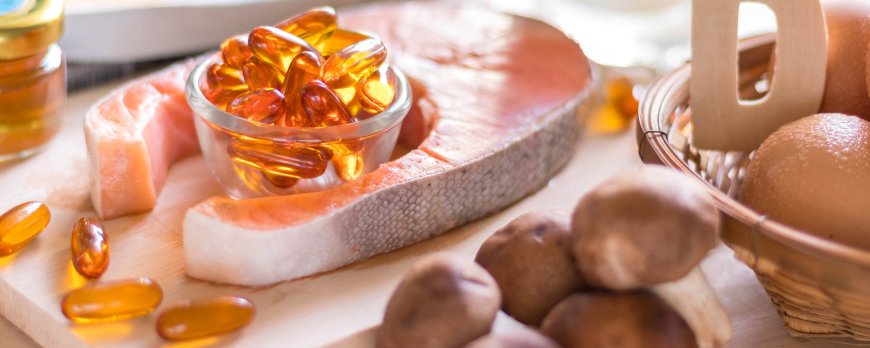What foods are prebiotics?
Unleash the power of your gut health. Discover 'What foods are prebiotics?' to nourish your gut bacteria and improve overall well-being. Learn more now!

What foods are prebiotics?
Prebiotics are a form of dietary fiber that are essential for nourishing the beneficial bacteria in your gut. These foods contain compounds like inulin and oligosaccharides which promote the growth of beneficial gut bacteria and support digestive health.
Key Takeaways:
- Prebiotics are dietary fibers that feed the "friendly" bacteria in your gut.
- Healthy prebiotic foods include chicory root, dandelion greens, Jerusalem artichoke, garlic, onions, leeks, asparagus, bananas, barley, oats, apples, konjac root, cocoa, mushrooms, seaweed, kiwifruit, legumes, potatoes, and barley.
- Consuming prebiotic-rich foods can help regulate blood sugar levels, maintain a healthy weight, reduce blood lipids, support healthy intestinal motility, and feed beneficial gut bacteria.
- Incorporating a variety of these foods into your diet can improve gut health and overall well-being.
Adding prebiotic foods to your diet is a simple and effective way to support your gut health. These natural prebiotics provide nourishment to the beneficial bacteria in your gut, helping to improve digestion and overall well-being. Incorporate a variety of prebiotic-rich foods into your meals and enjoy the many benefits they have to offer.
What are prebiotics?
Prebiotics are non-digestible fibers that serve as food for the good bacteria in your gut, helping them thrive. These fibers are found in certain foods and pass through the small intestine undigested, reaching the colon intact. Once in the colon, they are fermented by the beneficial bacteria, producing short-chain fatty acids that provide energy for the cells lining the colon.
Including prebiotic-rich foods in your diet is essential for maintaining a healthy gut microbiome. These foods contain compounds like inulin and oligosaccharides, which act as fuel for the good bacteria in your gut. By nourishing these bacteria, prebiotics help support digestion, boost nutrient absorption, and promote overall gut health.
Some of the best prebiotic-rich foods to incorporate into your diet include chicory root, dandelion greens, Jerusalem artichoke, garlic, onions, leeks, asparagus, bananas, barley, oats, apples, konjac root, cocoa, mushrooms, seaweed, kiwifruit, legumes, and potatoes. By incorporating a variety of these foods into your meals, you can ensure a diverse and thriving gut microbiome, which is essential for your overall well-being.
Benefits of Prebiotic-Rich Foods
Incorporating prebiotic-rich foods into your diet can have numerous benefits for your gut health and overall wellness. These foods contain compounds like inulin and oligosaccharides, which serve as a source of nourishment for the beneficial bacteria in your gut. By promoting the growth of these friendly bacteria, prebiotics help maintain a balanced and thriving gut microbiome.
One of the key advantages of consuming prebiotic-rich foods is their ability to regulate blood sugar levels. Research has shown that they can slow down the digestion and absorption of carbohydrates, preventing spikes in blood glucose levels. This can be particularly beneficial for individuals with diabetes or those at risk of developing the condition.
A healthy weight is also supported by a prebiotic-rich diet. These foods have been found to increase feelings of fullness and satiety, which can help prevent overeating and support weight management. Additionally, prebiotics can help reduce levels of triglycerides and cholesterol in the blood, contributing to heart health.
Supporting Digestive Health
- Prebiotics support healthy intestinal motility, helping to prevent constipation and promoting regular bowel movements.
- They also act as a natural prebiotic fiber, providing bulk to the stool and supporting optimal digestive function.
- Incorporating prebiotic-rich foods into your diet can help alleviate digestive issues such as bloating and gas.
Furthermore, prebiotics play a crucial role in nourishing the gut microbiota. By providing fuel to the beneficial bacteria in your gut, they help maintain a diverse and well-balanced microbial community. This, in turn, supports a strong immune system and overall well-being.
To reap the benefits of prebiotic-rich foods, aim to incorporate a variety of sources into your daily diet. Some popular options include chicory root, dandelion greens, onions, garlic, asparagus, bananas, oats, apples, mushrooms, seaweed, kiwifruit, legumes, and potatoes. Experimenting with different recipes and including these foods in your meals can help foster a healthy gut and improve your overall quality of life.
Remember, when introducing new foods to your diet, it's always important to listen to your body and consult with a healthcare professional if you have any specific dietary concerns or medical conditions.

Top Prebiotic Food Sources
There are several foods that are naturally rich in prebiotics, providing a wide range of options to incorporate into your diet. These foods contain compounds like inulin and oligosaccharides, which promote the growth of beneficial gut bacteria and support digestive health. Here is a list of top prebiotic food sources:
- Chicory Root
- Dandelion Greens
- Jerusalem Artichoke
- Garlic
- Onions
- Leeks
- Asparagus
- Bananas
- Barley
- Oats
- Apples
- Konjac Root
- Cocoa
- Mushrooms
- Seaweed
- Kiwifruit
- Legumes
- Potatoes
- Barley
These prebiotic-rich foods can help regulate blood sugar levels, maintain a healthy weight, reduce blood lipids, support healthy intestinal motility, and feed beneficial gut bacteria. Incorporating a variety of these foods into your diet can improve gut health and overall well-being.
By including prebiotic foods in your meals, you can support a healthy gut microbiome and enjoy the benefits of improved digestion and enhanced immune function. So, why not add some chicory root to your morning coffee, top your salads with dandelion greens, or include garlic and onions in your favorite dishes? With so many delicious options, it's easy to give your gut the nourishment it needs.
In conclusion, prioritizing prebiotic-rich foods in your diet is a simple and effective way to promote gut health. Experiment with different prebiotic sources and find what works best for you. Remember, a diverse and balanced diet is key to maintaining a healthy gut microbiome, so don't be afraid to mix it up and enjoy the benefits of these naturally occurring prebiotics.

Chicory root and dandelion greens: Promoting Gut Health with Prebiotic Foods
Chicory root and dandelion greens are two excellent sources of prebiotics that can support your gut health. These natural ingredients contain a variety of compounds, such as inulin and oligosaccharides, which act as a food source for the "friendly" bacteria in your gut. By nourishing these beneficial microbes, prebiotics help to maintain a healthy balance in your gut microbiome and promote optimal digestive function.
Incorporating chicory root and dandelion greens into your diet can have numerous benefits. These prebiotic-rich foods have been shown to help regulate blood sugar levels, support healthy weight management, and reduce blood lipids. Additionally, they contribute to healthy intestinal motility and provide nourishment for the growth of beneficial gut bacteria.
Rich in vitamins, minerals, and antioxidants, chicory root and dandelion greens offer a natural and nutritious way to enhance your gut health. You can easily include these ingredients in your daily meals by adding them to salads, soups, or smoothies. They provide a slightly bitter taste, which can be balanced with other flavors and ingredients to suit your palate.
Other Prebiotic-Rich Foods to Consider
- Jerusalem artichoke
- Garlic
- Onions
- Leeks
- Asparagus
- Bananas
- Barley
- Oats
- Apples
- Konjac root
- Cocoa
- Mushrooms
- Seaweed
- Kiwifruit
- Legumes
- Potatoes
By incorporating a variety of prebiotic-rich foods into your diet, you can support a healthy gut and overall well-being. Remember to consult with a healthcare professional or registered nutritionist to ensure that these foods align with your specific dietary needs and goals.
Garlic, Onions, and Leeks: Flavorful and Prebiotic-Rich
Garlic, onions, and leeks are not only flavorful additions to your meals but also provide valuable prebiotic benefits. These aromatic vegetables contain compounds like inulin and oligosaccharides, which act as food for the friendly bacteria in your gut. By nourishing these beneficial microorganisms, garlic, onions, and leeks support a healthy gut microbiome and promote optimal digestion.
Adding garlic, onions, and leeks to your diet can have numerous health benefits. These prebiotic-rich foods help regulate blood sugar levels, making them particularly beneficial for individuals with diabetes or insulin resistance. Additionally, they can play a role in maintaining a healthy weight by promoting feelings of satiety and reducing the risk of overeating.
Furthermore, garlic, onions, and leeks have been associated with improved cardiovascular health. They can help reduce blood lipids, such as cholesterol and triglycerides, and support overall heart health. These versatile vegetables also contain antioxidants that help combat oxidative stress and inflammation, further contributing to their positive impact on your well-being.
To enjoy the prebiotic benefits of garlic, onions, and leeks, incorporate them into various dishes. Add chopped garlic to stir-fries or roasted vegetables, sauté onions to enhance the flavor of soups and stews, or use leeks to create delicious and nutritious quiches or omelets. By regularly including these prebiotic-rich vegetables in your meals, you can support your gut health and enhance your overall digestive well-being.

Asparagus, Bananas, and Oats: A Trio of Prebiotic Powerhouses
Incorporating asparagus, bananas, and oats into your diet can provide a boost of prebiotics for your gut. These three foods are not only delicious but also packed with beneficial compounds that promote the growth of healthy gut bacteria and support optimal digestion.
Asparagus is a versatile vegetable that contains inulin, a type of prebiotic fiber. This fiber acts as food for the friendly bacteria in your gut, helping them thrive and maintain a balanced ecosystem. By including asparagus in your meals, you can support a healthy gut microbiome and improve overall digestive health.
Bananas are not only a convenient and tasty snack but also a fantastic source of prebiotic fiber. They contain resistant starch, which passes through the digestive system intact and provides fuel for the beneficial bacteria in your gut. Adding bananas to your diet can help regulate blood sugar levels, support healthy intestinal motility, and contribute to a well-functioning digestive system.
Oats are a popular breakfast choice and are known for their high fiber content. They contain a specific type of fiber called beta-glucan, which acts as a prebiotic and stimulates the growth of healthy gut bacteria. Incorporating oats into your morning routine can help improve digestion, promote a feeling of fullness, and support overall gut health.
By including asparagus, bananas, and oats in your diet, you can enjoy the benefits of prebiotics while adding delicious and nutritious foods to your meals. Remember to vary your sources of prebiotics to maximize their benefits, and consult with a healthcare professional for personalized dietary advice.

Barley, Apples, and Konjac Root: Excellent Choices for Prebiotic-Rich Meals
Barley, apples, and konjac root are excellent choices for incorporating prebiotics into your daily meals. These foods provide a wide range of health benefits and are rich in compounds that promote the growth of beneficial gut bacteria, supporting your digestive health.
Barley is a versatile grain that can be used in various dishes, such as soups, salads, and stir-fries. It contains a type of prebiotic fiber called beta-glucan, which has been shown to enhance the growth of beneficial bacteria in the gut. The fiber in barley also helps regulate blood sugar levels, maintain a healthy weight, and reduce blood lipids, making it a valuable addition to a prebiotic-rich diet.
Apples are not only delicious but also packed with prebiotic benefits. They contain a soluble fiber called pectin, which acts as a food source for beneficial gut bacteria. Including apples in your diet can help support healthy intestinal motility and improve overall digestion. Apples are easy to incorporate into your daily meals as a snack, added to salads, or even baked into desserts.
Konjac root, also known as glucomannan, is a popular ingredient in Asian cuisine. It is low in calories and high in soluble fiber, making it an excellent choice for those looking to improve their gut health. Konjac root helps promote feelings of fullness and can aid in weight management. It can be used in various dishes, such as stir-fries, soups, or even as a substitute for traditional pasta, providing a satisfying and prebiotic-rich meal option.
By incorporating barley, apples, and konjac root into your daily meals, you are not only adding delicious flavors to your diet but also supporting your gut health. These prebiotic-rich foods contribute to a diverse and thriving gut microbiome, leading to improved digestion, enhanced nutrient absorption, and overall well-being. Remember to include a variety of prebiotic foods in your diet to reap the maximum benefits for your gut health.
Other Prebiotic-Rich Foods
In addition to the previously mentioned foods, there are several other options to consider when looking to increase your prebiotic intake. These foods not only provide a delicious addition to your meals but also offer a range of health benefits.
Mushrooms
Mushrooms, such as shiitake, oyster, and maitake, are not only packed with flavor but also contain prebiotic fibers. These fibers, specifically beta-glucans, can help nourish the beneficial bacteria in your gut, promoting a healthy digestive system and supporting immune function.
Seaweed
Seaweed, such as nori, wakame, and kombu, is not only a staple in many Asian cuisines but also a fantastic source of prebiotics. It contains a unique fiber called alginate, which can help stimulate the growth of beneficial bacteria in your gut and contribute to overall gut health.
Kiwifruit
Kiwifruit is not only a tasty and refreshing fruit but also an excellent source of prebiotics. It contains a natural prebiotic known as actinidin, which can help support the balance of gut bacteria and aid in digestion. Including kiwifruit in your diet can help maintain a healthy gut microbiome.
Legumes and Potatoes
Legumes, such as lentils, chickpeas, and black beans, and potatoes are versatile and nutritious options that offer prebiotic benefits. They are rich in resistant starch, which resists digestion and serves as food for beneficial gut bacteria. Adding legumes and potatoes to your meals can help support gut health and provide a good source of energy.
By incorporating these prebiotic-rich foods into your diet, you can enhance the growth of beneficial gut bacteria and support your overall digestive health. Remember to aim for a diverse range of prebiotic sources to maximize the benefits and enjoy the delicious flavors these foods have to offer.
Conclusion
Including a variety of prebiotic-rich foods in your daily diet can help support a healthy gut and overall well-being. Prebiotics are a form of dietary fiber that feed the "friendly" bacteria in your gut, promoting the growth of beneficial gut bacteria and supporting digestive health.
Some healthy prebiotic foods to add to your diet include chicory root, dandelion greens, Jerusalem artichoke, garlic, onions, leeks, asparagus, bananas, barley, oats, apples, konjac root, cocoa, mushrooms, seaweed, kiwifruit, legumes, potatoes, and barley.
These foods contain compounds like inulin and oligosaccharides, which are known for their prebiotic properties. Consuming prebiotic-rich foods can have several benefits, such as regulating blood sugar levels, maintaining a healthy weight, reducing blood lipids, supporting healthy intestinal motility, and feeding beneficial gut bacteria.
Incorporating a variety of these prebiotic-rich foods into your diet can help improve gut health and contribute to overall well-being. So, make sure to include these foods in your daily meals to support a healthy gut and enjoy the many benefits they offer.
FAQ
What are prebiotics?
Prebiotics are a form of dietary fiber that feed the "friendly" bacteria in your gut and promote a healthy gut microbiome.
What foods are prebiotics?
Some healthy prebiotic foods to add to your diet include chicory root, dandelion greens, Jerusalem artichoke, garlic, onions, leeks, asparagus, bananas, barley, oats, apples, konjac root, cocoa, mushrooms, seaweed, kiwifruit, legumes, potatoes, and barley.
What are the benefits of prebiotic-rich foods?
Consuming prebiotic-rich foods can help regulate blood sugar levels, maintain a healthy weight, reduce blood lipids, support healthy intestinal motility, and feed beneficial gut bacteria.
Why are chicory root and dandelion greens good prebiotic sources?
Chicory root and dandelion greens are rich in compounds like inulin and oligosaccharides, which promote the growth of beneficial gut bacteria and support digestive health.
How do garlic, onions, and leeks contribute to a healthy gut?
Garlic, onions, and leeks contain prebiotic properties that can help support a healthy gut microbiome and improve digestion.
What is the role of asparagus, bananas, and oats in gut health?
Asparagus, bananas, and oats are prebiotic-rich foods that can contribute to a healthy gut by providing nourishment for beneficial gut bacteria.
What are the prebiotic benefits of barley, apples, and konjac root?
Barley, apples, and konjac root are prebiotic foods that support a healthy gut by promoting the growth of beneficial gut bacteria and improving digestion.
What other foods are rich in prebiotics?
Other prebiotic-rich foods include mushrooms, seaweed, kiwifruit, legumes, and potatoes, which can further contribute to a healthy gut microbiome.






























































































































